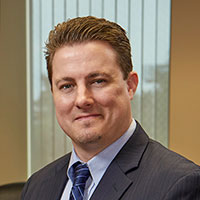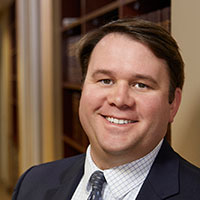Partners Rob Bennett and John Sciacca were recently successful in a Sonoma County lawsuit following an alleged slip and fall in Petaluma on November 9, 2018. John and Rob represented a local business owner who was sued by a visitor to his property. In discovery, plaintiff alleged she came to the defendant’s property to visit a friend and fell after exiting her car and walking a short distance in the defendant’s parking lot. She alleged defendant’s parking lot was in disrepair and that she had fallen as a result of broken pavement and a depression that was eroded into the pavement. As a result of the fall, plaintiff’s main injuries were to her left knee and right hand. In addition, following a failed surgery on her right hand, several of plaintiff’s medical providers diagnosed reflex sympathetic dystrophy syndrome. Finally, plaintiff alleged that as a result of the fall, she had been unable to work and was unable to return.
In July, 2020, Rob filed defendant’s motion for summary judgment on the basis that the alleged defect was trivial and therefore the defendant had no obligation to repair. The Trivial Defect Doctrine establishes that an individual is not liable for walkway defects that would not ordinarily cause injury when used with normal care. Rob argued the alleged defect would not cause injury when used with ordinary care. In opposition, the plaintiff submitted significant evidence that the defect was not trivial including testimony from witnesses who described the parking lot as “crumbling” and “falling apart.”
In its tentative ruling the court initially denied defendant’s motion. In the initial ruling the court relied heavily upon the factual allegations made by the plaintiff in opposition, detailing significant agreement with the plaintiff’s presentation of evidence. While overcoming a tentative ruling which relies primarily upon facts is typically difficult, Rob requested oral argument. At the hearing Rob focused on the specific defect being alleged by the plaintiff as having caused her fall, making sure the application of the Trivial Defect Doctrine was correct. While it is rare for a party to be successful in having the court change it’s initial ruling, the court in fact reversed the tentative ruling, agreed with Rob and granted the motion, ordering judgment for the defendants. As a result of the judgment, the client was able to regain some of it’s litigation costs.
Rob and John have been with the firm for over a decade. Both specialize in cases alleging complex liability and damages. John can be reached at (916) 540 – 7631 and Rob at (916) 666 – 7776.



